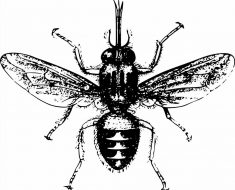Cubital tunnel syndrome is a health condition that involves compression of stretching of the ulnar nerve. The ulnar nerve supplies the muscles of the hand and what is commonly known as the funny bone.
The ulnar nerve runs along a channel on the inner side of the elbow, called the cubital tunnel.
Compression of the nerve inside this tunnel can lead to sensations such as pain, numbness, or tingling in the forearm, hand, or fingers, usually the ring and little fingers.
Causes
There are several possible causes of cubital tunnel syndrome, including pressure, stretching and anatomical abnormalities.
Direct pressure on the nerve from the external environment, such as when one leans the elbow on an armrest, can lead to nerve compression. The nerve has little padding to protect it, so even light pressure can be sufficient to compress the nerve and lead to symptoms of the syndrome.
When the elbow remains bent for an extended period of time, the ulnar nerve can be subject to stretching behind the elbow, leading to cubital tunnel syndrome. This can occur even in normal situations, such as when an individual is sleeping.
In some cases, the excessive back-and-forth movement of the ulnar nerve over the funny bone when the elbow joint is moved causes cubital tunnel syndrome. Over time, this can lead to irritation of the nerve and resulting symptoms.
The connective tissue in the elbow may also become thickened, producing constriction of the ulnar nerve, giving rise to the condition.
Symptoms
Cubital tunnel syndrome is associated with symptoms of:
- Pain
- Numbness
- Tingling
- Weakness
- Pins and needles
These symptoms typically affect the forearm, hand, ring finger and little finger. They often worsen when the elbow is bent for an extended period of time, and may cause the individual to feel weaker or clumsier than usual.
Diagnosis
The diagnosis of cubital tunnel syndrome usually involves a comprehensive medical history about the symptoms and concurrent health conditions, in addition to a physical examination. It is important to discuss associated conditions such as diabetes or thyroid disorders, which can lead to damage of the ulnar nerve.
In some cases, testing of the nerves can be helpful to establish the involvement of the nerves and muscles in the area. This also helps to differentiate cubital tunnel syndrome from other similar conditions, such as a pinched cervical nerve.
Treatment
Initially, the patient should be advised to avoid any activities or particular movements that they know tend to cause symptoms. For people who are affected at night while they sleep, wrapping a towel or using a splint to prevent the elbow from bending can be useful.
For some patients, surgery to reduce the pressure on the nerve may be required. There are various procedures that may be used to release the nerve, move the nerve or remove part of the surrounding bone or connective tissue. The best option depends on the specific patient.
Rehabilitative surgery following a surgical procedure is often recommended to aid the recovery and prevent the syndrome from recurring.
The recovery period can be several months, and some patients may continue to experience some symptoms, even after the surgical procedure.
References
- http://www.assh.org/handcare/hand-arm-conditions/cubital-tunnel
- http://patient.info/doctor/cubital-tunnel-syndrome
- http://orthoinfo.aaos.org/topic.cfm?topic=a00069
- https://www.ncbi.nlm.nih.gov/pmc/articles/PMC2599973/
- http://www.bssh.ac.uk/patients/conditions/22/cubital_tunnel_syndrome
- http://emedicine.medscape.com/article/1141515-overview#showall
Further Reading
- All Cubital Tunnel Syndrome Content
- Compressed Ulnar Nerve
Last Updated: Feb 26, 2019

Written by
Yolanda Smith
Yolanda graduated with a Bachelor of Pharmacy at the University of South Australia and has experience working in both Australia and Italy. She is passionate about how medicine, diet and lifestyle affect our health and enjoys helping people understand this. In her spare time she loves to explore the world and learn about new cultures and languages.
Source: Read Full Article





